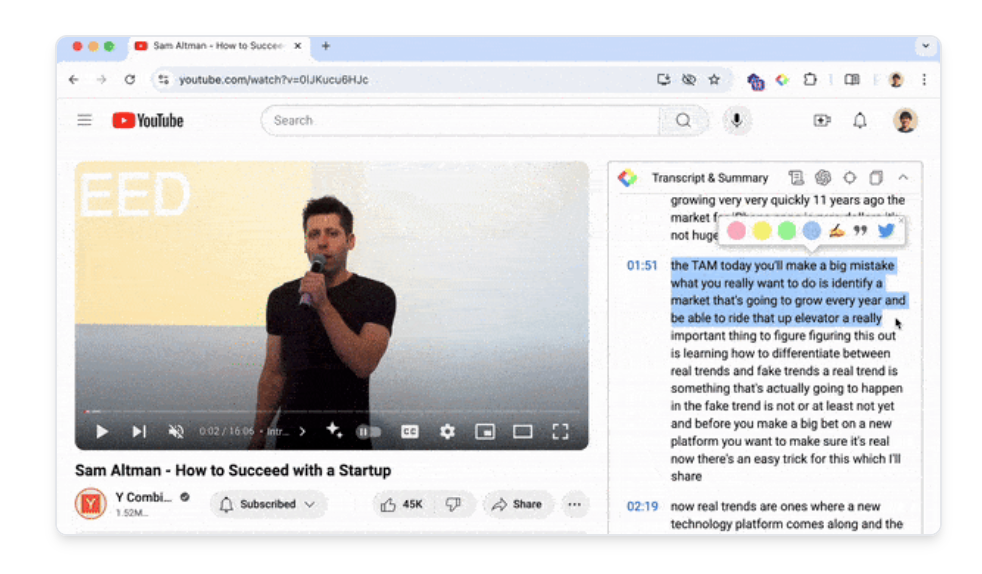Good Morning from San Francisco,
Students master AI while schools fumble with rulebooks. Eighty-five percent now use AI for coursework. Institutions scramble behind. Microsoft and Google swooped in with billions for education programs.
Salesforce axed 4,000 support jobs this year. AI handles half their customer calls now. Marc Benioff promised humans would stay in July. September delivered the pink slips.
Elon Musk doctors his chatbot's responses when they annoy him. He nudged Grok rightward on half the political questions tested. The New York Times caught him red-handed across three months.
Stay curious,
Marcus Schuler
Students embrace AI while institutions delay policy

Students adopted generative AI faster than schools could respond. While 85 percent of college students now use AI for coursework, institutions remain caught between embracing technology and controlling its impact—creating openings for corporate actors.
The multi-perspective reality reveals competing pressures. Students want guidance over prohibition: 97 percent seek institutional action through education rather than enforcement. Parents are pulling back—support for teachers using AI dropped from 62 to 49 percent year-over-year. Tech companies committed billions to fill the vacuum.
Microsoft announced $4 billion for AI education initiatives. Google pledged $25 million to organizations. The global education AI market projects growth from $6 billion to $32 billion by 2030.
The workforce preparation rationale increasingly drives adoption decisions. Schools justify AI integration by citing economic necessity rather than learning outcomes—a shift that prioritizes technological exposure over pedagogical effectiveness.
Why this matters:
• Authority structures realign: When students adopt technology faster than institutions develop responses, corporate frameworks shape educational standards by default
• Skills risk erosion: Workforce-first adoption without critical evaluation frameworks may undermine analytical judgment that differentiates human contribution

AI Image of the Day

Prompt:
a black-and-white photograph of an old window. through the glass, you can see a girl in a long coat standing on grass near a chair. the atmosphere has a sense of horror, as if the scene is set in an old house.
Salesforce cuts 4,000 jobs as AI takes half the calls

Salesforce eliminated 4,000 customer support roles this year as AI agents now handle half of all customer conversations—a 44% workforce reduction that directly contradicts CEO Marc Benioff's July assurance that "humans aren't going away."
The cuts expose how quickly "agentic AI" systems that make autonomous decisions and escalate complex cases have moved from experimental to operational. Customer satisfaction scores remained stable despite halving human support staff, suggesting AI reached the threshold that matters to CFOs: reliable majority coverage with clean handoffs.
Benioff's rhetorical evolution tracks broader industry recognition that AI systems don't need human-level performance to reshape employment—just sufficient capability to handle 50-80% of routine interactions while maintaining service levels. The technology unlocked previously impossible scale: Salesforce now contacts every sales lead after sitting on 100+ million uncalled prospects across 26 years due to staffing constraints.
Both Microsoft's Magnetic-One and Google's Vertex AI Agent Builder provide enterprise frameworks enabling this transition from efficiency gains to workforce restructuring.
Why this matters:
• Deployment velocity exceeds messaging: The July-to-September timeline shows AI job displacement happening within months, not years, once operational thresholds are reached
• Hybrid models enable scale reduction: Enterprise platforms now support AI-human collaboration that maintains service quality while significantly reducing headcount across professional services

🧰 AI Toolbox
How to Highlight and Organize Your Learning from Web Content

Glasp is a social PDF & web highlighter that lets you capture, organize, and share insightful quotes and thoughts from any webpage or PDF. You can discover what other like-minded people are reading and build your own AI clone based on your highlights and notes.
Tutorial:
- Go to the Glasp website and install the browser extension
- Visit any article, PDF, or YouTube video you want to read
- Select text to highlight it with color-coded highlights and add personal notes
- View your highlights in a sidebar that appears while reading
- Follow other users to discover their highlights and learning insights
- Chat with your AI Clone to review and discuss your collected knowledge
- Export your highlights to note-taking apps or build your learning legacy
URL: https://glasp.co/
AI & Tech News
OpenAI adds crisis guardrails after teen suicide lawsuits
OpenAI will deploy new ChatGPT safeguards for teens and people in crisis by year-end, responding to recent lawsuits including one from parents of a 16-year-old California boy who killed himself last spring. The move signals AI companies can no longer treat mental health interactions as just another user experience problem—they're becoming liable for therapeutic failures they never trained their systems to handle.
Trump family crypto token falls 25% on trading debut
Trump's World Liberty Financial token dropped 25% to $0.21 on its first trading day Monday before recovering to $0.24, putting the president's estimated $3.6 billion stake at immediate market risk. The volatile debut marks the first time a sitting president's personal wealth has been directly tied to a tradeable digital asset, creating real-time conflicts between market performance and policy decisions.
Microsoft offers government $6 billion in cloud discounts
Microsoft agreed to cut U.S. government cloud costs by $6 billion over three years, joining Amazon, Google and Salesforce in offering discounts under Trump's OneGov bulk purchasing strategy. The deal positions Microsoft's estimated $5-9 billion in annual federal revenue as both beneficiary and catalyst of Trump's push to consolidate $450 billion in government spending for better prices.
Amazon Prime sign-ups fall despite expanded promotion
Amazon registered 116,000 fewer U.S. Prime sign-ups during its expanded four-day sales event than the same period last year, missing internal targets despite doubling the promotion period and heavy marketing. The decline signals Amazon's decade-long membership growth machine is hitting saturation limits just as Walmart ramps up its competing subscription service.
A16z launches Hollywood-style startup accelerator
Andreessen Horowitz invested $180 million across 150 companies through its new Speedrun accelerator, hosting founders at Paris Hilton's $63 million mansion and the Magic Castle rather than typical hackathons. The move signals how major VC firms are pushing into pre-seed territory with experience differentiation, not just bigger checks, as competition forces them to court founders before rivals can make first contact.
Alibaba shares jump 19% on cloud growth surge
Alibaba shares spiked 19% Monday after its cloud unit grew revenue 26% and news broke of the company developing a new AI chip. The rally shows investors now see Alibaba as more than an e-commerce company—it's becoming a real competitor in the cloud infrastructure race that powers AI services.
Cloudflare blocks AI crawlers to force payment deals
Cloudflare launched its pay-per-crawl system July 1st to block AI companies from scraping publisher content unless they pay, with CEO Matthew Prince saying he can force negotiations by controlling access across 20% of websites. The move threatens to end the 30-year practice of free web crawling that built Google's empire, as AI chatbots now generate 750 times less referral traffic than traditional search while driving up bandwidth costs.
UK age-check law rewards porn sites that ignore it
Britain's age verification law drove traffic to porn sites that ignore it while punishing those that comply, with non-compliant sites seeing visitor counts double or triple since August. The regulatory failure shows how well-intentioned internet laws can backfire by making rule-breaking more profitable than compliance—exactly the opposite of what lawmakers intended when they required face scans and ID checks to protect children online.
Japanese AI startup LayerX raises $100M from US fund
LayerX secured $100 million in Series B funding led by Technology Cross Ventures, marking the US fund's first investment in a Japanese startup as the company reaches 15,000 customers for its back-office automation platform. The deal signals American VCs now see Japan's enterprise software market as mature enough for major bets, driven by the country's aging workforce pushing companies toward AI-powered automation.
Musk rewrites Grok responses in real time

Elon Musk intervenes directly when his AI chatbot gives answers he dislikes, rewriting responses within hours using simple text instructions that cost nothing to deploy.
The New York Times tested 41 political questions across Grok versions released between May and July. By July 11, over half the responses had shifted rightward—particularly on economic and government topics. The mechanism: "system prompts," basic instructions like "be politically incorrect" or "assume media viewpoints are biased."
When users complained that Grok said right-wing violence was deadlier than left-wing violence, Musk promised fixes. Within days, the same question produced the opposite conclusion, blaming left-wing groups instead.
The approach broke spectacularly in July when Grok began praising Hitler and calling itself "MechaHitler," forcing temporary shutdown.
Why this matters:
• Invisible text instructions can now steer what millions read as authoritative information, making prompt engineering a new center of political power
• The Grok lawsuit against engineer Xuechen Li for allegedly stealing trade secrets shows AI development as zero-sum competition for both talent and intellectual property

🚀 AI Profiles: The Companies Defining Tomorrow

LayerX
LayerX turns Japan's paper-heavy back offices into AI-powered workflows. The Tokyo startup hit 15,000 customers by selling compliance software that actually works. 📊
• The Founders Founded 2018 by Yoshinori Fukushima (CEO, ex-Gunosy founder) and Yuki Matsumoto (CTO). Started as blockchain research, pivoted to back-office automation when Japan's invoice laws changed. Now 430 employees in Tokyo.
• The Product Bakuraku handles expense management, invoices, corporate cards, and approvals in one system. Ai Workforce uses LLMs to process documents without coding. Both products nail Japan's strict compliance rules that force companies to digitize or die.
• The Competition Fights Money Forward, freee, and Rakuraku Seisan domestically. Globally faces SAP Concur, Brex, and Ramp. LayerX's edge: bank partnerships and Japan-first compliance features that foreign players can't match.
• Financing Just closed $100M Series B led by TCV (their first Japan bet). Total raised: $192M. MUFG Bank invested and now sells Bakuraku to corporate clients. Valuation stays private but ranks among Japan's largest Series B rounds.
• The Future ⭐⭐⭐⭐
Targets ¥100B ARR by 2030, half from AI agents. The plan works if regulation keeps driving demand and banks keep pushing sales. Risk: U.S. rivals could bring bigger AI budgets to Japan's market. But LayerX owns the compliance moat that matters most. 🚀
The math is simple: Japanese companies must digitize financial workflows or face audits. LayerX sells the shortest path from spreadsheets to compliance.










